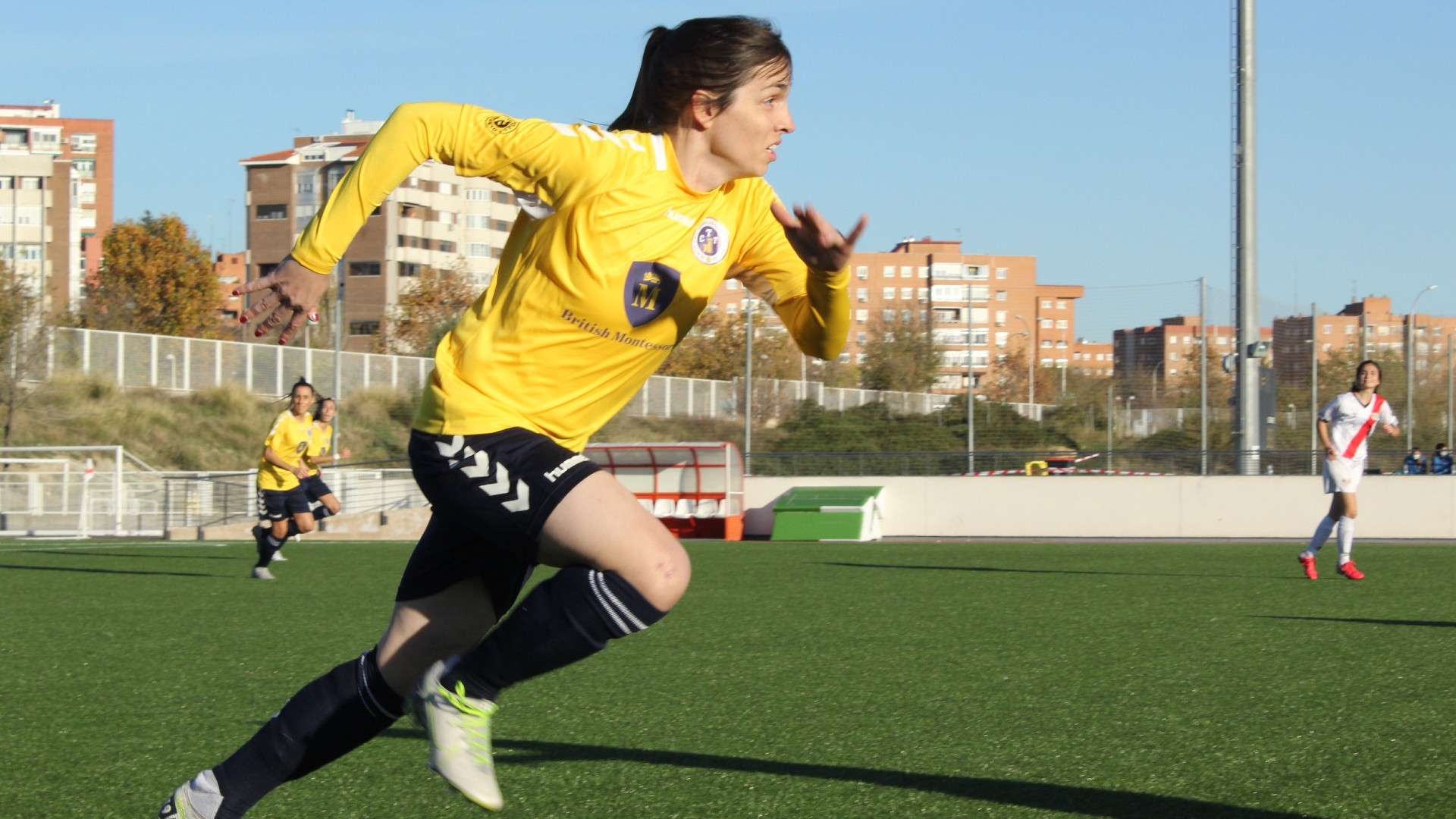Remembering her second debut, Alba Palacios’ eyes glaze over with happiness as she recalls the high point of her life in football.
Palacios scored 20 minutes into her first appearance for Las Rozas in Primera Nacional, the third tier of women’s football in Spain. Remembering that goal, back in September 2018, automatically brings a smile to the winger’s face.
She is speaking exclusively to Goal via Zoom and a translator. However, when describing how she felt at that moment, no translation is necessary.
“Flote," she says. “I felt like I was flying. It was my best moment.”
This was her second debut in football, and her first as Alba. Palacios is one of barely a handful of transgender women playing the sport at even a semi-professional level across Europe.
Born in Madrid, Palacios played men’s football until she was 24, with fourth tier club Pozuelo de Alarcon, whom she had been with since the age of 10.
It was during a training session with Pozuelo de Alarcon where Palacios felt the first pangs of knowing something was not quite right.
“I was 12, we were having a practice session, there was a session for the boys and one for the girls,” she says.
“I really wanted to be with the girls, I desperately wanted to be playing with them. But it wasn’t until I was 21 when I felt really convinced and secure that I wanted to transition.”
She fell out of playing football for several years but returned to the game as Alba at the age of 32 as she began hormone treatment, signing with Las Rozas before moving on to fellow third tier club Samper.
She impressed in the lower leagues, and last season signed for Primera Division club Madrid CFF. However, injuries stopped her making her first-team debut in the top division of women’s football before Covid-19 struck and halted football completely.
 Torrelodones CF
Torrelodones CFNow with Torrelodones CF, currently top of Primera Nacional, the 35-year-old is pleased with her career – but would have played football at any level, and with any gender team-mates.
“I go first, and then soccer. That is my life rule,” she says. “I don’t rely on soccer to carry on with my life – if I couldn’t play at a high level, I would be happy to play in an amateur league.
“When I was just starting hormone treatment, I was still playing with boys. If they made me play with men, I would have no problem, even knowing I would have a disadvantage.”
While in some nations – especially the United Kingdom – vicious debate has emerged regarding transgender people in everyday life, let alone sport, Palacios has always felt that the Spanish football authorities have been supportive.
“They made it all happen and they let me play before I completed two years since the start of the hormone therapy, so I’m grateful from the bottom of my heart for what they’ve done for me and the transgender community”, she told AS in 2018.
A couple of years on, Palacios remains as positive about her experiences – even when it comes to opponents and opposition fans.
She says: “I have always been treated just like another member of the team, no matter who I have played for. I have always got along well with team-mates.
“I have been very lucky. I have not had any bad comments from team-mates, opponents or fans. There was one game, there were fans calling and beckoning me, but they wanted selfies. They were asking for pictures of me!
“I have played with all sorts of players, but I never go less than full effort. There are opposition players who are stronger and taller than me; my personal experience is often that I am the one getting hurt, instead of the other way around.
"I don’t feel, just because I am transgender, that I am stronger or have some kind of advantage.”
 Torrelodones CF
Torrelodones CFThere are strict rules governing whether transgender players are eligible to play in men’s or women’s football. Palacios is tested twice a season to ensure her hormones are at a low enough level to ensure that there are not any biological differences between her and the other 21 women on the field.
For Palacios, the case is black and white, and critics of her right to play the game she loves need to show more understanding.
She says: “There are rules about hormones that I should have and, in the end, it should not be a debate because these are levels that you can measure; it is science. Every six months, I have tests to make sure I am ok.
“It should not be a debate because these are strict rules. There are just a lot of team-mates better than me."
Her coach at Las Rozas, David Herrero, put it plainly in 2018: “The competitions are run in terms of sex, not levels of testosterone. Some women produce more than others. Alba’s testosterone has fallen with the hormone treatments.
"Biologically, she can compete with women because she’s a woman. Her abilities have been developed over her life and have nothing to do with her sex."
While others argue, Palacios takes a serene view of the situation in which her love of the game is the deciding factor.
“I only wanted to play soccer,” she says. “I wasn’t thinking about getting to the top division. I just wanted to play soccer, where I feel I belong.
“I never thought that I wanted a big offer to go to a great team, or to play for the national team. I just wanted to play soccer and be happy.”
